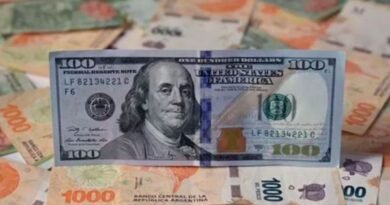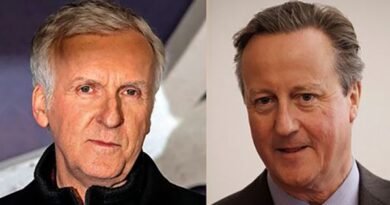A backward Church or an ideologically combative and confused Pope?
[ad_1]
A backward Church or an ideologically combative and confused Pope?
Pope Francis last week called the US branch of the Church “backward”, accusing right-wing American Catholics of replacing faith with ideology
By Gwynne Dyer – Javier Milei, who is very likely to be elected president of Argentina in the October election, is fairly frank in his view of Pope Francis, a fellow Argentine. He calls Francis “a Communist turd” and “the representative of the Evil One on Earth”. Even for a ranter like Milei, who ranks very high on the Trump scale of invective, that’s rare praise.
The white, Republican-voting majority of American Catholics have a somewhat more nuanced way of expressing themselves, but they too see Pope Francis as at best naive, at worst an ideological enemy within the gates. (Most American bishops were appointed by Francis’s two very conservative predecessors, John Paul II and Benedict.)
Pope Francis gives as good as he gets. Last week he called the US branch of the Church “backward”, accusing right-wing American Catholics of replacing faith with ideology. So just another version of the ever-present ‘Culture War’, except that both sides are wearing ecclesiastical vestments.
But it’s actually more complicated than that, because the ‘liberal’ Pope of today was not so liberal when he was starting out back in Argentina in the 1970s. I first heard of him when he was the provincial superior of the Jesuit order in Argentina, and Jesuit priests were being targeted by the military regime’s death squads in the ‘Dirty War’.
They were being targeted because the Jesuits were the foremost organizers in Latin America of a Catholic movement called ‘liberation theology’: distinctly left-wing, working mainly with the urban poor and indigenous people, and hated by the American-backed military regimes that then ruled almost everywhere in South America.
I was travelling around the continent interviewing people for a radio series on the ‘new’ Catholic Church. I’m not a believer, but I had managed to win the Jesuits’ confidence. When I got to Argentina, my Jesuit contacts were two young priests living in a Church-owned house in one of the poorest ‘villas miserias’ (slums) in Buenos Aires.
Radio series don’t pay much, and as a young freelance journalist I was saving money by staying in Church-owned properties whenever possible. (Besides, you learn more that way.) However, these priests warned me not to stay there, as they were expecting a Ford Falcon any day now.
Ford Falcons, as everybody knew, were the cars that the regime’s death squads used to take the suspects to their doom, and these priests were expecting to be arrested, tortured and killed in the near future. But before I changed accommodation, they expressed their anger at being abandoned even by their own Jesuit order, in the person of one Father Bergoglio.
Fr. Bergoglio, of course, later became Pope Francis. He was the head Jesuit in Argentina at the time and a determined enemy of ‘liberation theology’ – so much that the young priests suspected him of collaborating with the junta and probably knowing that they were on the junta’s kill list. They were.
They were duly ‘disappeared’ a few weeks later and never seen again. (These are not the more famous Jesuit priests, Orlando Yorio and Franz Jalics, who were kidnapped by the Argentine Navy in 1976 and did survive, possibly thanks to Bergoglio’s intercession, after five months of torture.) But he was definitely keeping bad company.
I don’t believe that Bergoglio handed over the two young priests I met. They were not in hiding – and I suspect they were courting martyrdom, as some people do in such strange circumstances. I think Bergoglio shared some of the junta’s paranoia about the left at the time, and wasn’t very brave about using his influence to save people. That’s all.
It’s more than forty years later, and people change. Pope Francis is a more mature and less ideological man than the old Bergoglio – but he’s still combative ideologically, and he’s still confused.
He condemns the “obsession” of some Catholics with issues like “abortion, gay marriage and the use of contraceptive methods” and welcomes transgender Catholics in the Church, but he says gender transitioning is a sin and strongly criticizes gender studies, calling it “one of the most dangerous ideological colonizations today.”
He’s equally confused on the political front. He explains that it was NATO “barking at Russia’s door” that “provoked” Moscow and “perhaps facilitated” the invasion of Ukraine.
When he did criticize Russia, he said “Generally, the cruelest are perhaps those who are of Russia but are not of the Russian tradition, such as the Chechens and Buryats and so on…”
Presumably he means that the Chechens and Buryats are so cruel because they are Muslims and Buddhists, whereas the Russians are at least Christian. The man may mean well, but he has been promoted to his level of incompetence. You might call it the St. Peter Principle.
[ad_2]
Source link




